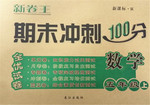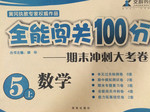题目内容
完形填空
Among the most popular books being written today are those which are usually classified as science fiction (幼想小说). Hundreds of 1 are published every year and are read by all kinds of people. 2 , some of the most successful films of recent years have been 3 on science fiction stories.
It is often thought that science fiction is a fairly new 4 in literature (文学), 5 its ancestors (祖先) can be found in books written hundreds of years ago. These books often 6 the presentation of some form of ideal (理想的) 7 , a theme which is 8 often found in modern stories.
Most of the classics (名著) of science fiction, 9 , have been written within the last one hundred years. Books 10 writers, such as Jules Verne and H. G. Wells, to 11 just two well-known authors, have been translated into many languages. 12 science fiction writers don't write about men from Mars of space adventure stories. They are more interested in predicting (预见) the effect of 13 progress 14 society and the human mind, or in 15 future worlds which are a 16 of the world, 17 we live in now. 18 of this their writing has obvious political undertones (含意). In an age when scientific fact frequently 19 science fiction, the writers may find it difficult to keep 20 of scientific advances.
1.
[ ]
2.
[ ]
3.
[ ]
4.
[ ]
5.
[ ]
6.
[ ]
7.
[ ]
8.
[ ]
9.
[ ]
10.
[ ]
11.
[ ]
12.
[ ]
13.
[ ]
14.
[ ]
15.
[ ]
16.
[ ]
17.
[ ]
18.
[ ]
19.
[ ]
20.
[ ]

 新卷王期末冲刺100分系列答案
新卷王期末冲刺100分系列答案 全能闯关100分系列答案
全能闯关100分系列答案完形填空:
Experiments have 1 that children can be instructed in swimming 2 a very early age. At a special swimming pool in Los Angles, children become expert at 3 breath under water before they can walk. Babies of two months 4 do not appear to be reluctant (不愿) to enter the water. It is not long 5 they are so accustomed to swimming that they can pick up weights from the floor of the pool. A game that is very popular with these young swimmers is the underwater tricycle (三轮车) race. Tricycles are 6 up on the floor of the pool seven feet under water. The children compete (比赛) against each other to 7 end of the pool. Many pedal (踏) their tricycles, but most of them prefer to push or drag them. Some children can 8 the whole length of the pool without coming up for a breath even once. Whether they will ever become future Olympic champions, only time will 9 . Meanwhile, they should encourage those among us who cannot swim five yards before they are gasping for 10 .
| 1.A.done | B.succeeded | C.failed | D.proved | [ ] |
| 2.A.at | B.for | C.in | D.of | [ ] |
| 3.A.keeping | B.holding | C.taking | D.having | [ ] |
| 4.A.time | B.long | C.old | D.age | [ ] |
| 5.A.when | B.before | C.after | D.since | [ ] |
| 6.A.picked | B.stood | C.set | D.lined | [ ] |
| 7.A.the | B.the other | C.another | D.other | [ ] |
| 8.A.go | B.walk | C.cover | D.run | [ ] |
| 9.A.tell | B.say | C.speak | D.talk | [ ] |
| 10.A.rest | B.stop | C.air | D.while | [ ] |
| |||||||||||||||||||||||||||||||||||||||||||||||||||||||||||||||||||||||||||||||||||||||||||||||||||||||||||||||||||||||||||||||||||||||||||||||||||||||||||||||||||||||||||||||||||||||||||||||||||||||||||||||||||||||||||||||||||||||||||||||||||||||||||||||||||||||||||||||||||||||||||
| |||||||||||||||||||||||||||||||||||||||||||||||||||||||||||||||||||||||||||||||||||||||||||||||||||||||||||||||||||||||||||||||||||||||||||||||||||||||||||||||||||||||||||||||||||||||||||||||||||||||||||||||||||||||||||||||||||||||||||||||||||||||||||||||||||||||||||||||||||||||||||